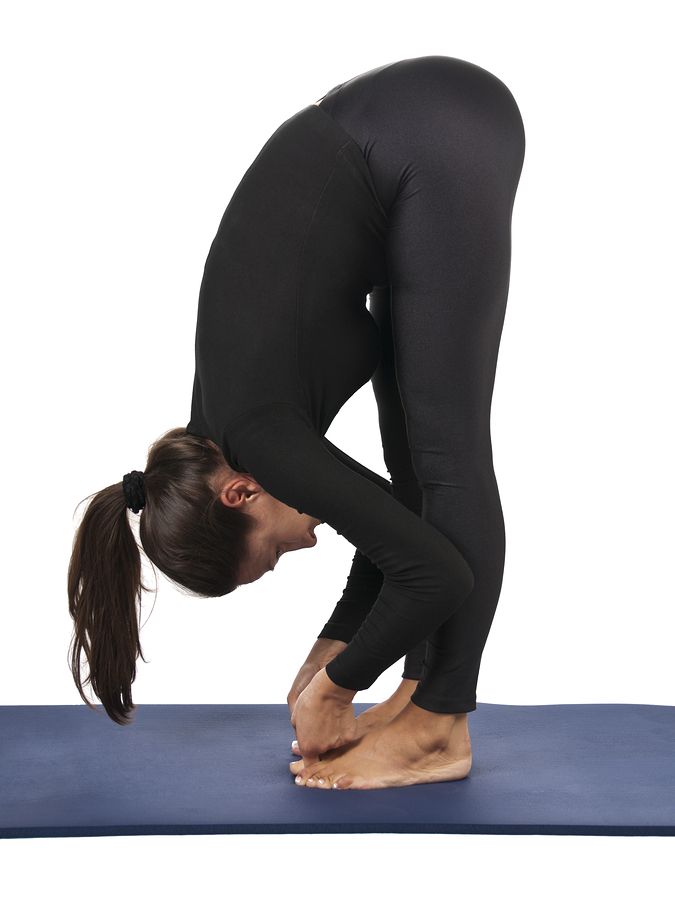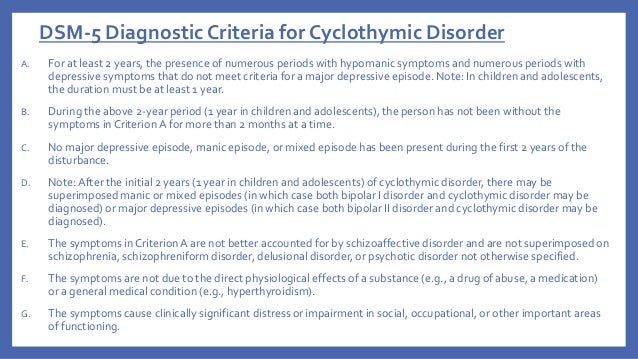Woman and self esteem
Understanding Women & Self Esteem
What do you like about yourself? Are you proud of yourself? If these questions make you feel uncomfortable, or you cannot answer them, chances are that you have a problem with self esteem.
Why is that? Why do so many of us basically dislike ourselves? Why are we embarrassed to “esteem” ourselves? Before answering this question, we must first define self-esteem.
Self esteem comes from the inside out. It means that a woman is not dependent upon anyone else to make her feel good about herself, because she already knows she’s fine just the way she is. She is confident and aware of her strengths and abilities. She wants to share them with others. This does not mean she is conceited. She is also aware of areas needing work and growth. But that’s ok because she knows she’s not perfect, and she doesn’t have to be. No one is. She understands that we all have our strengths and weaknesses.
Self-esteem is a core identity issue, essential to personal validation and our ability to experience joy. Once achieved, it comes from the inside out. But it can be assaulted or stunted from the outside in. A woman with low self-esteem does not feel good about herself because she has absorbed negative messages about women from the culture and/or relationships
The reign of youth, beauty and thinness in our society dooms every woman to eventual failure. Starting with the teenage market, women’s magazines program them to focus all their efforts on their appearance. Many girls learn, by age 12, to drop formerly enjoyable activities in favor of the beauty treadmill leading to nowhere. They become fanatical about diets. They munch, like rabbits, on leaves without salad dressing, jog in ice storms, and swear they love it! Ads abound for cosmetic surgery, enticing us to “repair” our aging bodies, as if the natural process of aging were an accident or a disease.
Yet with all this effort, they still never feel like they are good enough. How can they? Magazine models are airbrushed to perfection, and anorectic.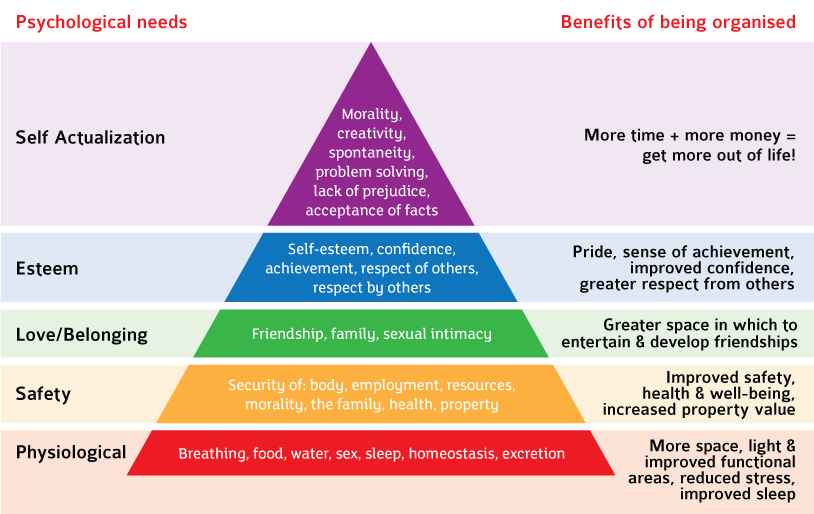 “Beautiful” movie stars are whipped into perfect shape by personal trainers, and use surgery to create an unnatural cultural ideal. But youth cannot last. It is not meant to. If women buy into this image of beauty, then the best an older woman can strive for is looking “good for her age” or worse yet, “well preserved.” Mummies are also dead.
“Beautiful” movie stars are whipped into perfect shape by personal trainers, and use surgery to create an unnatural cultural ideal. But youth cannot last. It is not meant to. If women buy into this image of beauty, then the best an older woman can strive for is looking “good for her age” or worse yet, “well preserved.” Mummies are also dead.
Abusive experiences join with cultural messages to assault female self esteem. Abuse is pervasive and cuts across all socioeconomic lines. It invariably sends the message that the victim is worthless. Many, many women have told me that verbal abuse hurt them far more than any physical act. As one woman put it, “his words scarred my soul.” Women whose abuse started as children have the most fragile sense of identity and self worth. Poor self esteem often results in depression and anxiety. Physical health suffers as well. Many times, women with this problem don’t go for regular checkups, exercise, or take personal days because they really don’t think they’re worth the time.
Relationships are impacted as well. Their needs are not met by their partner because they feel like they don’t deserve to have them met, or are uncomfortable asking. Their relationships with their children can suffer if they are unable to discipline effectively, set limits, or demand the respect they deserve. Worse yet, low self-esteem passes from mother to daughter. The mother is modeling what a woman is. She is also modeling, for her sons, what a wife is.
In the workplace, women with low self-esteem tend to be self-deprecating, to minimize their accomplishments, or let others take credit for their work. They never move up. Finally, with friends, they are unable to say no. They end up doing favors they don’t want to do, or have any time for. They end up going where they don’t want to go, with people they don’t want to go with!
A woman with low self-esteem has no control over her life.
But that can change. These women can get help and emotional healing. It is critical to remember that no one deserves to be abused.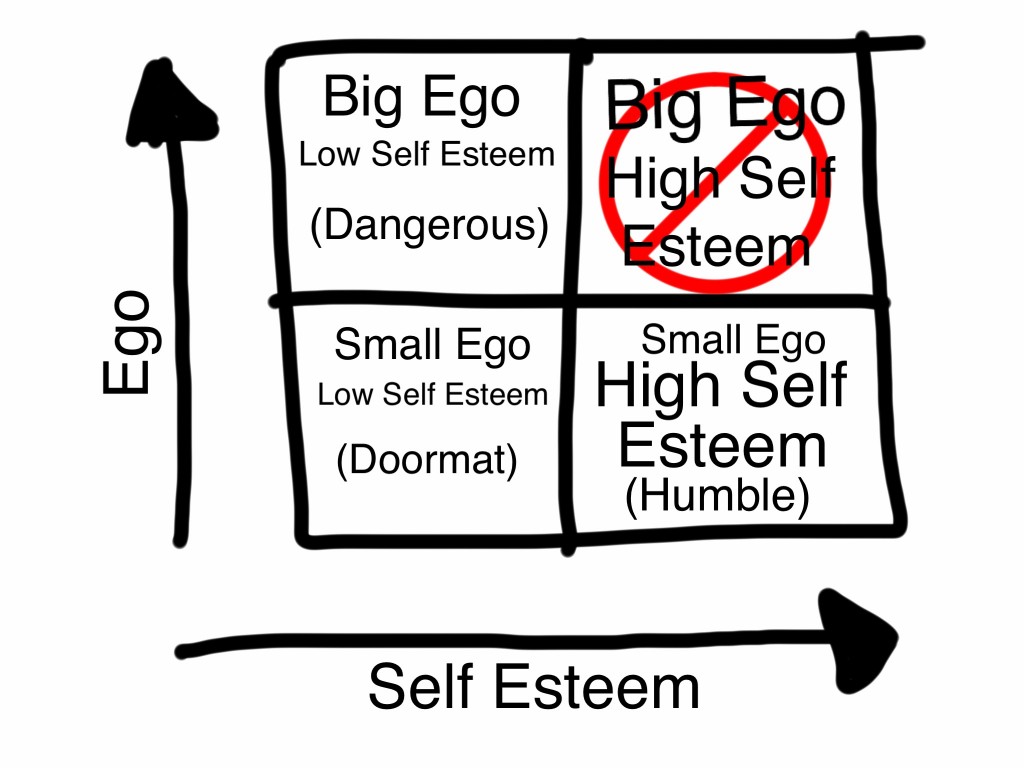 If something bad has happened to you, it does not mean there is something wrong with you. The responsibility for the abuse lies with the person who chooses to hurt you. If you are presently being abused, you must put yours and yours and your children’s safety first.
If something bad has happened to you, it does not mean there is something wrong with you. The responsibility for the abuse lies with the person who chooses to hurt you. If you are presently being abused, you must put yours and yours and your children’s safety first.
You can call the National Domestic Violence Hotline 1-800-799-SAFE for help or more information.
Why Women Have Low Self-Esteem
Photo: Greg Miller
Why is it that women pick up on the slightest slur and never hear the good stuff? Criticisms are stored forever; compliments evaporate instantly.
My goddaughter, visiting from college, is sprawled on my bed while we enact one of our regular rituals: I peruse my closet, offering her the clothes I no longer wear. "Take this, I don't have the legs for short skirts," I say, or "These pants make me look hippy." She regards me with quizzical amusement, suggesting that I have body dysmorphic disorder—that I'm one of those people preoccupied with minor, and often imaginary, flaws in physical features.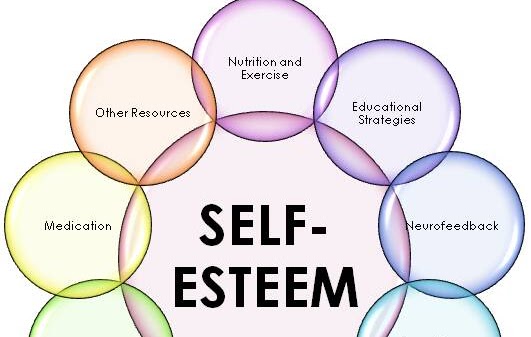 At the very least, she insists, I need new glasses.
At the very least, she insists, I need new glasses.
And we're not talking mere physical insecurity. When I meet a book editor about a potential publishing contract, I fret about my abilities, discounting a thriving career and a reputation in good standing of more than 20 years. If guests are coming for dinner, I worry that my home won't be pleasing, that my brownies won't merit the caloric expenditure, that the conversation won't be sufficiently scintillating. Somehow I manage to navigate life fairly well, to earn a living and have relationships, to walk without weaving and chew without spitting. But as I watched the movie
Pretty Woman recently, it occurred to me that plenty of us have the same self-doubt that derailed the Julia Roberts character. There's a scene where she's telling the wealthy businessman played by Richard Gere that nobody ever plans to be a hooker, that she fell into this line of work because she didn't think much of herself. Gere observes that she's a special person with a lot of potential and capabilities.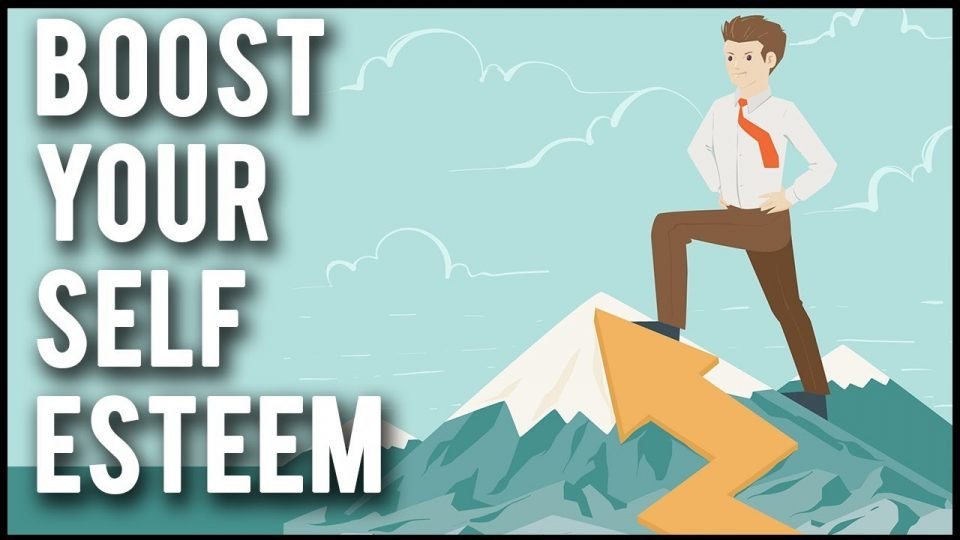 And she replies, "The bad stuff is easier to believe."
And she replies, "The bad stuff is easier to believe."
Why it that some people, the Donald Trumps of the world, seem to believe only the best about themselves, while others—perhaps especially women, perhaps especially young women—seize on the most self-critical thoughts they can come up with? "It turns out there's an area of your brain that's assigned the task of negative thinking," says Louann Brizendine, MD, a neuropsychiatrist at the University of California, San Francisco, and the author of The Female Brain. "It's judgmental. It says 'I'm too fat' or 'I'm too old.' It's a barometer of every social interaction you have. It goes on red alert when the feedback you're getting from other people isn't going well." This worrywart part of the brain is the anterior cingulate cortex. In women, it's actually larger and more influential, as is the brain circuitry for observing emotions in others. "The reason we think females have more emotional sensitivity," says Brizendine, "is that we've been built to be immediately responsive to the needs of a nonverbal infant. That can be both a good thing and a bad thing."
That can be both a good thing and a bad thing."
The hormonal surges in the female brain—what Brizendine describes as the rising tide of estrogen and progesterone—make a woman more sensitive to emotional nuance, such as disapproval or rejection. The way you interpret feedback from other people can depend on where you are in your cycle. "Some days the feedback will reinforce your self-confidence," says Brizendine, "and other days it will destroy you." Her decision to make this hormone cycle in the female brain the focus of her research was made in medical school, when she was working with adolescents at Yale–New Haven Hospital. "How teen girls come to believe bad stuff about themselves really captivated me," she says. "There's something about the menstrual cycle that puts your emotional self in a bad light at least a few days every month. About 90 percent of women feel some kind of increased emotionality two to four days before their period starts, where they're crying over dog food commercials. I wanted to get a message to girls who are slipping down some slippery slope and get a safety net under them."
I wanted to get a message to girls who are slipping down some slippery slope and get a safety net under them."
Scientists are pretty much in agreement that at least half of your personality comes from your gene pool—it's part of the identity card you're issued at birth. Life experiences help to shape the other half. If you acquire some idea about yourself—perhaps you're known as the problem child in a classroom or the slacker in a family—that idea will have an impact on your brain circuitry and get built into how you think about yourself. "Our human brains love to categorize and label—'the pretty one' or 'the dependable one' or 'the smart one,'" says Brizendine. "Then you grow accustomed to the label and often re-create that identity because it feels familiar. It can mean all kinds of goodies but also all kinds of burdens."
The only time I go into Old Navy is when I need a teen-appropriate gift.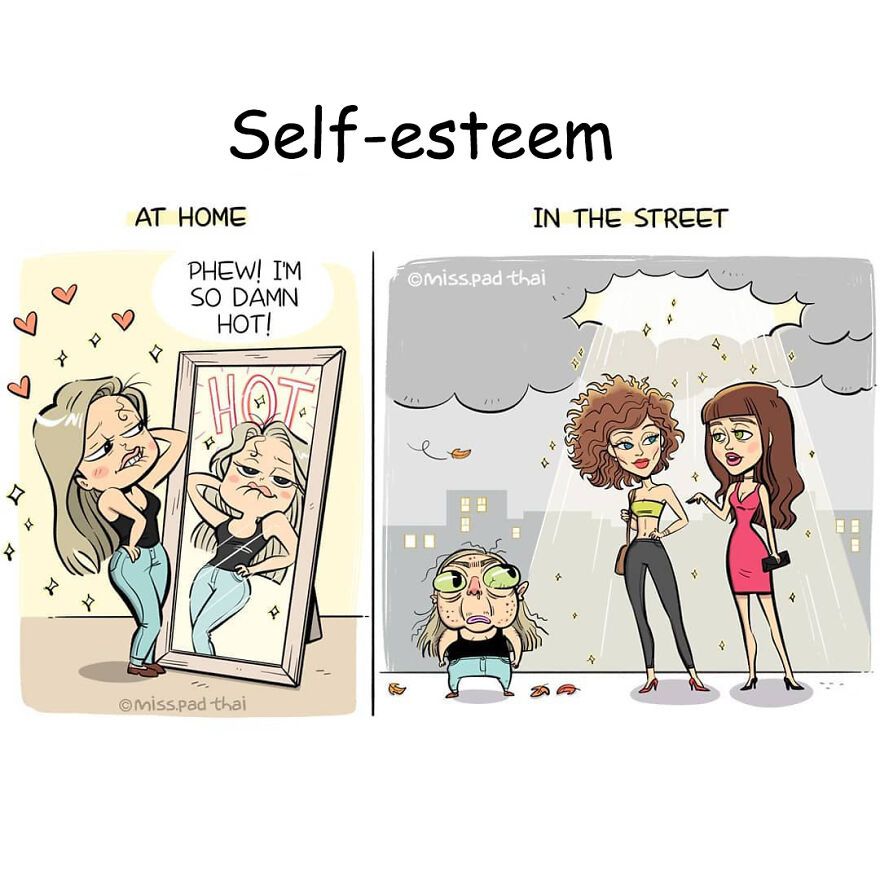 (I generally have a rule: If I can't stand the store's music, I'm too old to wear the store's clothes.) But recently I was seduced into the dressing room by the lure of cool cheap stuff and found a virtual petri dish of youthful vulnerability about believing the bad stuff—I eavesdropped on one plaintive "Does this make me look fat?" after another. "One of the major tasks of adolescence is, 'Who are you?'" says Jessica Henderson Daniel, PhD, associate professor of psychology at Harvard Medical School. "Belonging and finding your niche in terms of assets and liabilities is colored by what other people see—because you don't live in a bubble. More often than not, girls don't look like what they think they should look like." There is a critical window of opportunity in early childhood when it is possible to infuse a girl with a sense of self-worth that is not based on the size of her breasts or the luster of her hair, says Daniel. "People generally fall short of the media ideal, which is why I advocate helping youngsters prepare for adolescence in their elementary years, building up their skills so they have proof that they are more than an image.
(I generally have a rule: If I can't stand the store's music, I'm too old to wear the store's clothes.) But recently I was seduced into the dressing room by the lure of cool cheap stuff and found a virtual petri dish of youthful vulnerability about believing the bad stuff—I eavesdropped on one plaintive "Does this make me look fat?" after another. "One of the major tasks of adolescence is, 'Who are you?'" says Jessica Henderson Daniel, PhD, associate professor of psychology at Harvard Medical School. "Belonging and finding your niche in terms of assets and liabilities is colored by what other people see—because you don't live in a bubble. More often than not, girls don't look like what they think they should look like." There is a critical window of opportunity in early childhood when it is possible to infuse a girl with a sense of self-worth that is not based on the size of her breasts or the luster of her hair, says Daniel. "People generally fall short of the media ideal, which is why I advocate helping youngsters prepare for adolescence in their elementary years, building up their skills so they have proof that they are more than an image. Youngsters who have pride in accomplishment are more anchored."
Youngsters who have pride in accomplishment are more anchored."
A study at the University of Texas how easily body image is undermined: A group of adolescent girls were in a room with an attractive woman who complained about how fat she was (the implication being that anybody who was heavier than she would really have something to complain about). There was an immediate impact on the body image of the girls, even though the encounter was brief and the woman was a stranger. "Up to 50 percent of adolescent girls have body image concerns," says Eric Stice, PhD, lead researcher on that study. "Up to 70 percent of girls say they would take a pill to lose five pounds; with males, it's maybe 15 percent. And puberty moves young men toward the ideal male body image, strong and muscled, but moves young women
away from the ideal female body image, lean with no hips. It's really sad that adolescent girls look at airbrushed images in the media that aren't even real. They're killing themselves for something that isn't real. "
"
I had terrific parents and others who consistently let me know I was smart, pretty, and valued. But for some people, the roots of believing the bad stuff as adults may lie with parents who do not demonstrate faith in a child's abilities, and no other adults are around to provide illumination. "There's a nice body of evidence showing that kids with at least one supportive adult who counteracts these messages can find avenues for expressing the positive sides of themselves," says Susan Nolen-Hoeksema, PhD, a professor of psychology at Yale and the author of Women Who Think Too Much. Parental depression is readily transmitted to kids, too. "The parents see the world in negative terms and present this view to their children," says Nolen-Hoeksema. "They're hypercritical and irritable toward their kids. They don't want to be, but it's part of their disorder.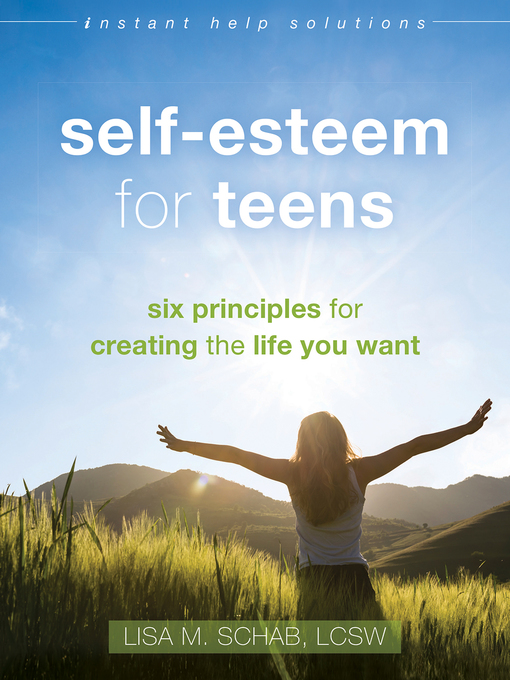 Those kids have a real tendency to adopt self-critical thinking. It tends to be perpetuated across every aspect of a child's life, especially in a small community, where you stay in the same school district, and your brothers and sisters are in the same district, and the teachers know your parents. You remain 'the fat girl' or 'the slutty girl.' It's really hard to shake off."
Those kids have a real tendency to adopt self-critical thinking. It tends to be perpetuated across every aspect of a child's life, especially in a small community, where you stay in the same school district, and your brothers and sisters are in the same district, and the teachers know your parents. You remain 'the fat girl' or 'the slutty girl.' It's really hard to shake off."
One reason it's hard to shake off is what psychologists call the drive for self-verification—to have others reflect the beliefs we hold about ourselves. Most people are highly motivated to believe the best of themselves, and subtly or not so, they look for feedback from others to confirm these good feelings. But someone who's depressed will go out and seek negative feedback, verifying her own thoughts. In a 2000 study by Thomas E. Joiner, PhD, a psychology professor at Florida State University, the self-verification motive was so powerful that it overrode the pain of negative opinions. And a 2001 study coauthored by Joiner's colleague psychology professor Roy F.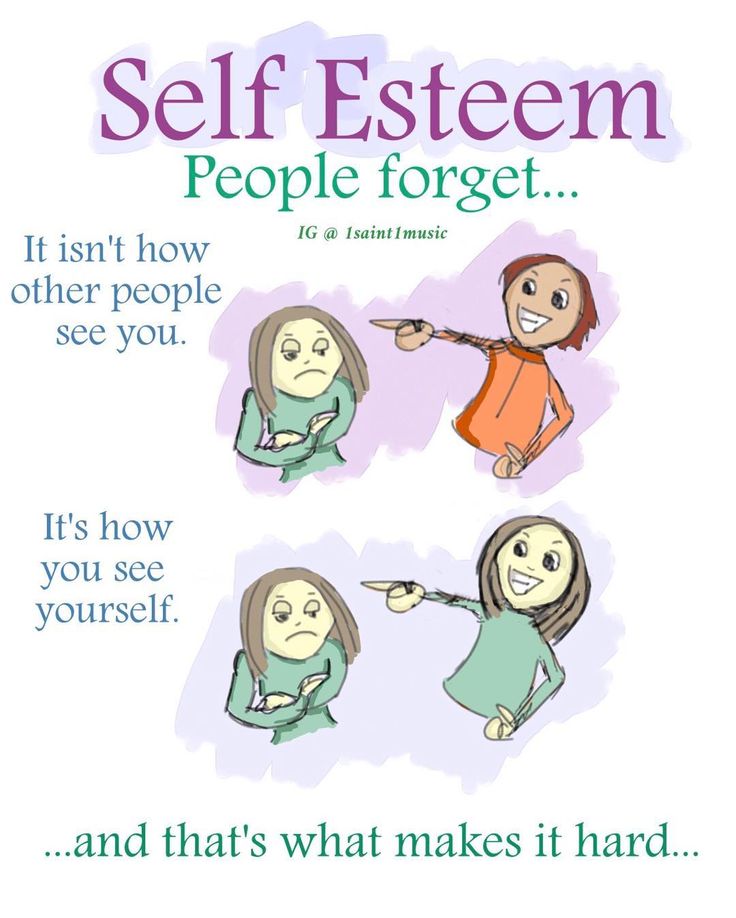 Baumeister, PhD, confirmed the idea that "bad is stronger than good": Bad feedback, bad parenting, and bad experiences are much more powerful than good ones. People remember the bad more vividly, process it more efficiently, and pay more attention to it. Bad impressions or stereotypes form more quickly, and negative feelings produce longer-lasting effects. So my brain tricks me into remembering more vividly the occasional cooking disaster (a moment of silence now for the leaden spinach gnocchi I once foisted on innocent guests) than the preponderance of delicious food I've cooked. Or the miserable period of my life when I was injured, couldn't exercise, and gained 10 pounds instead of the rest of my life when I've fit into skinny jeans.
Baumeister, PhD, confirmed the idea that "bad is stronger than good": Bad feedback, bad parenting, and bad experiences are much more powerful than good ones. People remember the bad more vividly, process it more efficiently, and pay more attention to it. Bad impressions or stereotypes form more quickly, and negative feelings produce longer-lasting effects. So my brain tricks me into remembering more vividly the occasional cooking disaster (a moment of silence now for the leaden spinach gnocchi I once foisted on innocent guests) than the preponderance of delicious food I've cooked. Or the miserable period of my life when I was injured, couldn't exercise, and gained 10 pounds instead of the rest of my life when I've fit into skinny jeans.
Naturally, the peer group has great power over what you believe about yourself. "If other kids are calling you names and don't want you on their teams, you pick it up with lightning speed," says Nolen-Hoeksema. I was consistently the last one chosen for volleyball, and to this day I regard myself as a person with zero athletic prowess. I always seem to be the least graceful person in yoga class (yes, I know yoga is not supposed to be a competition, but really, people), and I almost wept with gratitude when someone in a jazz dance class told me I moved well. I carry that clumsy little girl I used to be like a monkey on my back, partly because I am what Nolen-Hoeksema has identified as a "ruminator," someone who mulls, analyzes, worries about past, present, and future (the word derives from the Latin for cows "chewing their cud"). If you're a ruminator (and the tendency is there fairly early in life, getting back to that identity card you're issued at birth), when you enter challenging emotional situations, you're more at risk for taking in negative messages—from family, school, the world—essentially turning them on yourself, building a big file of evidence that you really are a screw-up or that people don't like you.
I was consistently the last one chosen for volleyball, and to this day I regard myself as a person with zero athletic prowess. I always seem to be the least graceful person in yoga class (yes, I know yoga is not supposed to be a competition, but really, people), and I almost wept with gratitude when someone in a jazz dance class told me I moved well. I carry that clumsy little girl I used to be like a monkey on my back, partly because I am what Nolen-Hoeksema has identified as a "ruminator," someone who mulls, analyzes, worries about past, present, and future (the word derives from the Latin for cows "chewing their cud"). If you're a ruminator (and the tendency is there fairly early in life, getting back to that identity card you're issued at birth), when you enter challenging emotional situations, you're more at risk for taking in negative messages—from family, school, the world—essentially turning them on yourself, building a big file of evidence that you really are a screw-up or that people don't like you.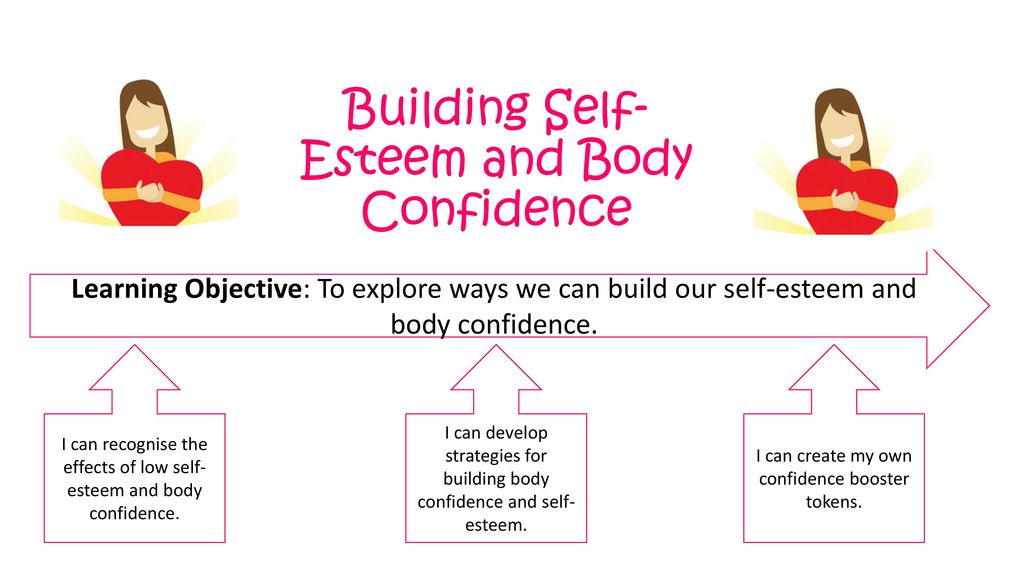 "Being a ruminator makes this stuff stick," she says. "But it is changeable. What cognitive therapy seems to do is not convince you otherwise but teach that you can look for alternative ways of viewing yourself. You say, "I know this bad stuff feels like it's true, but it tears me down." And you make the choice to think otherwise."
"Being a ruminator makes this stuff stick," she says. "But it is changeable. What cognitive therapy seems to do is not convince you otherwise but teach that you can look for alternative ways of viewing yourself. You say, "I know this bad stuff feels like it's true, but it tears me down." And you make the choice to think otherwise."
The most powerful messages are the most global—you feel "ugly" or "fat" or "stupid" or "not good enough"—and they're hard to deflect in adolescence, when you're not sophisticated enough to say: "That's one person's view, and it needn't stick with me." Kids can be remarkably intuitive about the need to protect themselves from negative feedback—remember that childhood chant "Sticks and stones may break my bones, but names will never hurt me." But such an incantation is protective only if the child really believes it. And it's easier to believe the bad stuff when you're unhappy or nervous—a phenomenon known as memory bias. "Our moods shape our ability to recall things about ourselves," explains University of Toronto psychotherapist Zindel Segal, PhD. "Naturally, when you're feeling down, it's easier to recall failures or times when you've messed up. The mind is mired in a negative view. The same holds true for anxiety: Someone who is timid or frightened might be leery of a new situation, might look for comfort in ways she's been able to secure it before. It's staying with the devil you know."
"Naturally, when you're feeling down, it's easier to recall failures or times when you've messed up. The mind is mired in a negative view. The same holds true for anxiety: Someone who is timid or frightened might be leery of a new situation, might look for comfort in ways she's been able to secure it before. It's staying with the devil you know."
Back to Pretty Woman, which is really a paradigm of the wake-up call that Segal says can change negative thinking: "The Roberts character gets into a relationship with Gere that's different from one with an ordinary wealthy john. His interest in her is as more than just a hooker, and she feeds off that to explore herself." For people who don't live in Hollywood movies, a wake-up call could be reading a book that inspires you, or having an experience that shakes you out of your usual pattern. I've been thinking about Austen and Brontë heroines like Fanny Price or Jane Eyre, who come from small, mean, meager lives but blossom when exposed to the world beyond. I've heard the adult children of alcoholics talk about escaping strife at home by finding refuge with neighbors or at school, where they're encouraged by messages of possibilities. The next step is identifying the barriers in your way, Segal says: "It could be a spouse who tells you you're no good, or a boss who says you don't deserve a raise. Maybe you're someone who has grown up taking care of others but not yourself."
I've been thinking about Austen and Brontë heroines like Fanny Price or Jane Eyre, who come from small, mean, meager lives but blossom when exposed to the world beyond. I've heard the adult children of alcoholics talk about escaping strife at home by finding refuge with neighbors or at school, where they're encouraged by messages of possibilities. The next step is identifying the barriers in your way, Segal says: "It could be a spouse who tells you you're no good, or a boss who says you don't deserve a raise. Maybe you're someone who has grown up taking care of others but not yourself."
There is good—no, great—news about changing a pattern like negative thinking, according to neuroscientist Michael M. Merzenich, PhD, at the University of California, San Francisco, who has demonstrated how the brain remakes itself all the time. Taking recordings from the nerve cells of a monkey's brain, Merzenich and his colleagues showed how a particular area of the brain became inactive when the animal was unable to use one of its fingers. But within a few months, the neurons no longer receiving signals for that finger were appropriated for use by an adjacent part of the hand.
But within a few months, the neurons no longer receiving signals for that finger were appropriated for use by an adjacent part of the hand.
"The brain is not like a computer that has fixed wiring and connections," says Merzenich. "Every aspect of you is created by the brain revising itself in response to your interactions in the world—and I mean everything. How you define yourself—the person you are—is a product of plastic changes in your brain. That includes things that relate to your attitude and your emotional construct. What you are is a result of how your brain has tried to create a model of the world, and the brain is plastic until you die."
Transforming negative thinking doesn't occur instantly. "People can't just change their attitude on a dime," says Merzenich. "You're going against all that weight of experience. Thousands of historic moments have led to that bad attitude—every time you've thought about yourself in a defeatist or inferior position. That's deeply embedded, and it takes a substantial effort over a substantial time to drive the brain in a new direction. " But you (and I, and anyone) can make profound, fundamental changes in how the brain operates. It's not that different from doing Pilates or taking a spinning class to change your physical self. In fact, Merzenich cofounded a company called Posit Science that produces technical "brain games" as training exercises for that highly plastic part of us. We know that we can enhance memory; now, remarkably, it seems that we can improve outlook.
" But you (and I, and anyone) can make profound, fundamental changes in how the brain operates. It's not that different from doing Pilates or taking a spinning class to change your physical self. In fact, Merzenich cofounded a company called Posit Science that produces technical "brain games" as training exercises for that highly plastic part of us. We know that we can enhance memory; now, remarkably, it seems that we can improve outlook.
For me, believing the good stuff starts with awareness. The ruminator residing inside me is not easily silenced. (Is this article good? And does it make me look fat?) But I'm at least recognizing and acknowledging when she makes an unwelcome appearance. I tell her that she's looking good, that her brownies are to die for, that she should just chill.
I may even reconsider short skirts.
From the August 2008 issue of O, The Oprah Magazine
NEXT STORY
Read online "Woman and Self-Esteem" by Julia McBennett - LitRes
Introduction
Self-esteem is a combination of feelings and perceptions of one's own body, personal value and self-esteem. In other words, this is how a person subjectively evaluates his worth, which includes both positive and negative character traits.
In other words, this is how a person subjectively evaluates his worth, which includes both positive and negative character traits.
Women's self-esteem is how a woman sees herself, how confident she is, how much she appreciates and loves herself or hates herself. nine0005
The concept of self-esteem is important for the interaction of people with each other, because it forms the personality of a person. Career choices, personal and social life, friendships, relationships, happiness, success, achievements, worldview, values, etc. depend on it. Self-esteem can be either high or low. And it depends on how the woman's mental activity is set up, what she considers satisfaction and how she sees success. Self-esteem controls emotions in relation to oneself, thereby influencing feelings in relation to other people. nine0005
Normal and healthy self-esteem should be adequate, positive, but realistic. It helps to form a positive attitude towards life. Inflated self-esteem, like low self-esteem, can be destructive, so it is necessary to maintain an even balance between them.
Self-esteem is closely related to how much you like yourself and how you accept and value your individual character traits, qualities, skills and achievements. A woman with low self-esteem may not always be confident in herself or the way she looks. Such a woman often does not know or does not notice what is significant and necessary to other people. A woman with adequate self-esteem is confident in her body and mind and can recognize her strengths as well as her personal worth. nine0005
Self-esteem is important for everyone because it helps you maintain a positive outlook on life and makes you feel proud of the person you are, both inside and out.
Self-esteem gives you:
- The courage to try new things;
- The strength to believe in yourself;
- The assurance that you are always making the right choices for your mind and body now and throughout your life.
Unrealistic or excessively high self-esteem can be just as unhealthy as low self-esteem. However, it is important to distinguish between healthy high self-esteem and arrogance. High self-esteem is not selfish when you think you are infallible or better than others. nine0005
However, it is important to distinguish between healthy high self-esteem and arrogance. High self-esteem is not selfish when you think you are infallible or better than others. nine0005
Arrogance is when a person's self-esteem deviates from reality and becomes the dominant force in his life, and here we can say that too high self-esteem equals an inflated ego.
However, narcissism is not a natural development of healthy self-esteem, which, in turn, values itself no higher than everyone else.
Instead, narcissism or arrogance describes a person who is primarily focused on himself, considers himself more important or worthy than others, and often does not think about how his actions affect others. nine0005
It may seem that narcissists have high self-esteem, but research shows that inflated opinions of themselves often actually mask low self-esteem, negative self-image, feelings of shame, and hidden self-directed anger.
People with narcissistic personality disorder are also more likely to have comorbid mental disorders such as depression and anxiety, often feel helpless, and have unstable personal relationships.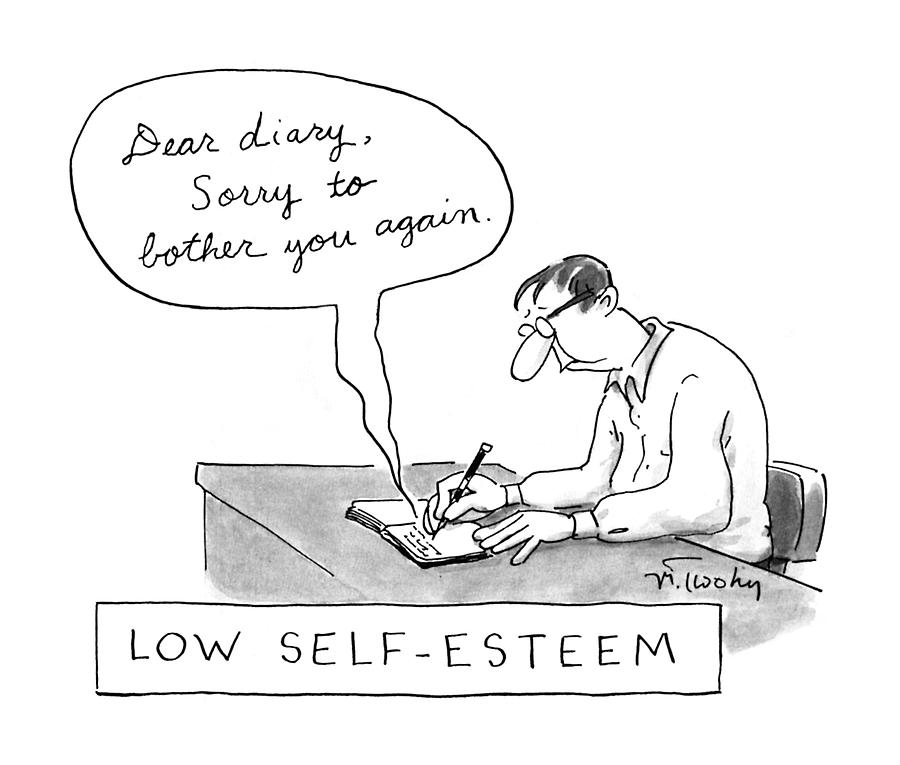
Self-respect and the realization that any woman deserves care and protection will help maintain an adequate attitude towards herself.
Building high self-esteem can take a long time because it is a long journey and not always easy, but knowing that you can increase your self-esteem is the first step.
Signs of low self-esteem in a woman
There are many reasons for low self-esteem, but one of them is that many of us spend too much time seeking external approval. But self-esteem is just that, it's self-respect. And only you can decide when your self-esteem will be at the level at which it should be. nine0005
Whether you are a young girl, a woman, perhaps in your 40s or 50s, we all struggle with self-esteem issues.
If you've ever looked in the mirror and didn't like the person looking at you, then you have low self-esteem. It doesn't necessarily have to do with your physical self - although a poor body image can cause negative thoughts - but it is inextricably linked to how you view yourself as a person.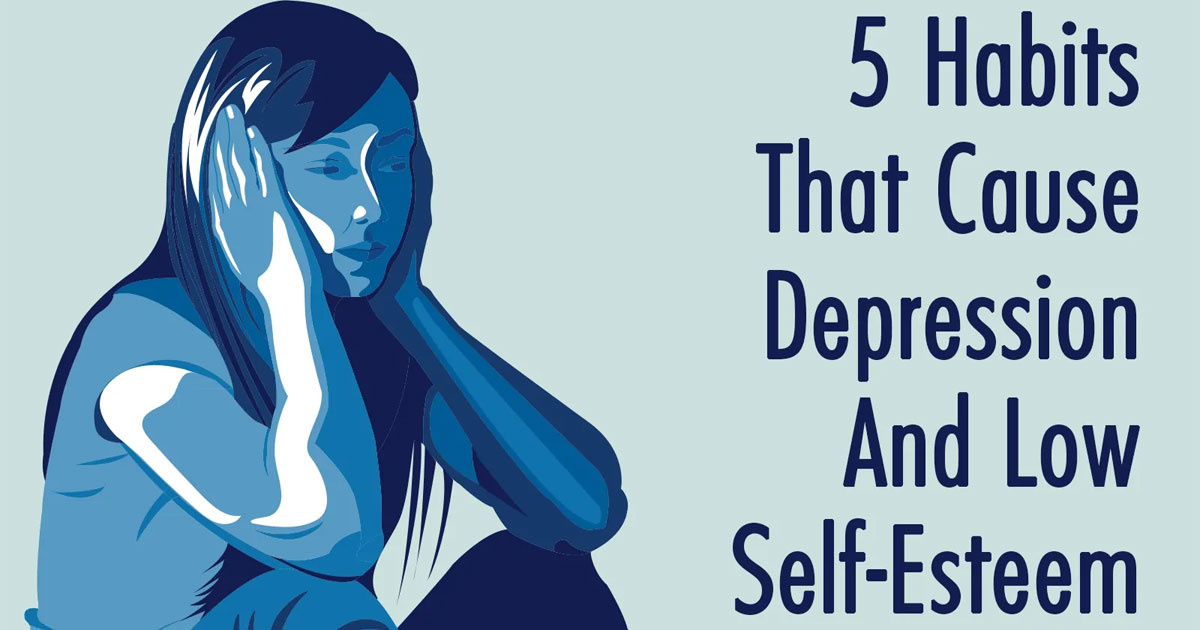
Often a woman deceives herself into believing that her self-esteem is at its peak, when in fact she is showing signs of low self-esteem. It is important to understand this in time in order to restore self-confidence. nine0005
Low self-esteem is a lack of self-confidence. And this can negatively affect one aspect of life or all at once. A woman can be confident at work, but doubt her relationship with a partner, or vice versa.
Remember the time when you were ashamed of yourself, of your appearance. Maybe you've had braces, bad skin, worn your brother's or sister's old clothes. You can look back and see your low self-esteem flying like a flag now. But as you get older, low self-esteem becomes a lot harder to spot. nine0005
We grow within certain limits of our lives and believe that one day we will succeed. And if this does not happen, then we try to survive the working week as soon as possible in order to leave for the weekend.
That is why it is not easy to detect low self-esteem in a woman. We have been taught not to show our negative emotions and feelings, and in fact it may look like we are conceited rather than hiding our self-doubt.
We have been taught not to show our negative emotions and feelings, and in fact it may look like we are conceited rather than hiding our self-doubt.
In women, low self-esteem is caused by both internal and external factors. Bullying, family drama, negative relationship experiences, and of course, psychological issues such as anxiety and depression can create low self-esteem. nine0005
A woman may constantly think that she is unattractive if her life has been nothing but bad relationships. She may have low self-esteem if her relationship with her parents is strained. And childhood bullying can cause a lot of confidence issues even for a strong and independent career woman.
Other causes of low self-esteem:
1. Unhappy childhood, when parents (or other significant people, such as teachers) were extremely critical;
2. Poor school performance leading to self-doubt; nine0005
3. A stressful life event, such as a broken relationship or financial problems;
4.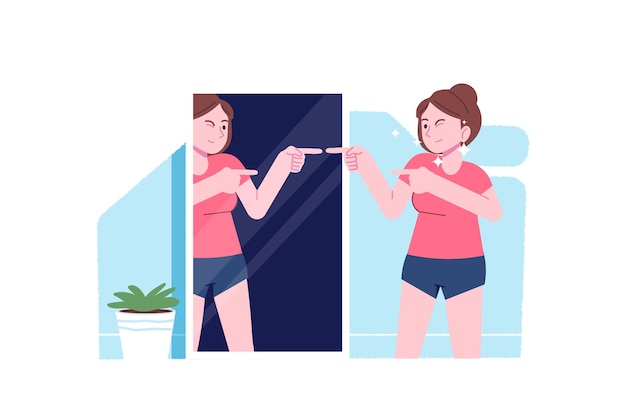 Being mistreated by a partner, parent or caregiver, such as being in an abusive relationship;
Being mistreated by a partner, parent or caregiver, such as being in an abusive relationship;
5. Current medical problem such as chronic pain, serious illness or physical disability;
6. Mental illness such as anxiety disorder or depression;
And it is possible and necessary to work with all these reasons in order to form an adequate attitude towards oneself. nine0005
But what does low self-esteem look like? Of course, this may not be obvious. A woman with low self-esteem is usually depressed, always doubting herself and all aspects of life. She may not like to go shopping to buy herself new clothes, not putting effort into her appearance, and not trying to make career plans.
But more often the signs of low self-esteem in a woman are more subtle.
1. Need for attention
Many women with low self-esteem crave attention in every possible way. Such a woman can constantly artificially attract the attention of surrounding men, her makeup is usually too bright out of place and out of time, her clothes are of a poisonous bright color and there are excessively many jewelry on her body.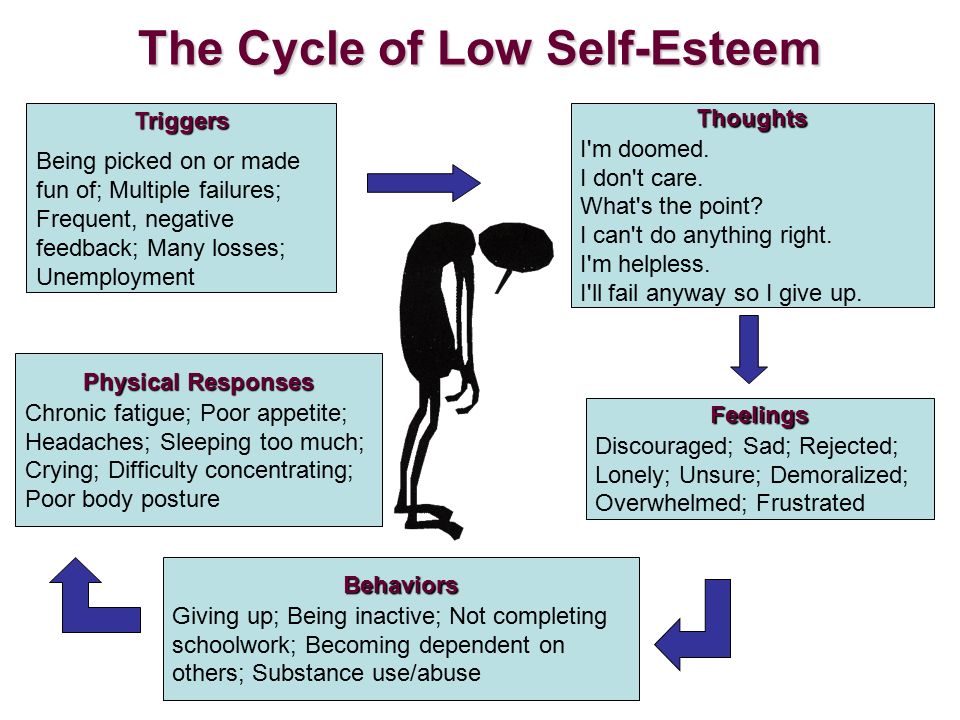 Or vice versa, a woman dresses in gray tones, does not make up, is not very sociable, but cries over every trifle, which constantly attracts attention to herself. nine0005
Or vice versa, a woman dresses in gray tones, does not make up, is not very sociable, but cries over every trifle, which constantly attracts attention to herself. nine0005
2. Pessimistic
Yes, some women with low self-esteem will attract attention in various ways. Others will see the negative in every situation. Instead of looking at the positive side of the circumstances, they will always look at the worst.
Such a woman will go on a date, thinking that it will end badly. Or she will immediately have a negative attitude towards a potential employer, because she doubts that she has a chance to get the position for which she is applying. Such women will always try to attract attention with their negative attitude towards themselves, constantly complaining about their hopeless life. nine0005
3. Lack of drive
Many women with high self-esteem are always setting new goals for themselves. They receive a brilliant education, and then a corresponding position, and after a few years their eyes are fixed on more interesting work.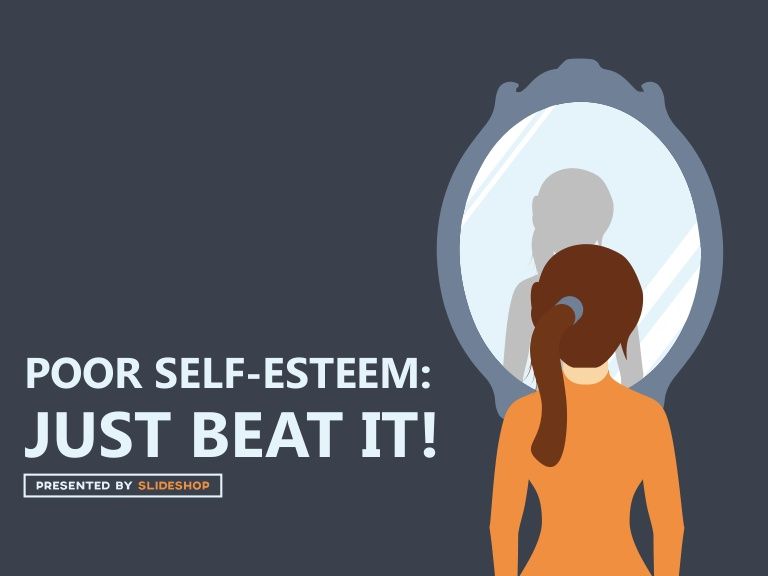
A woman with low self-esteem may stay in a low paying job below her ability simply because she does not have the courage and belief that she can do more.
4. Imitation
It is difficult for a woman with low self-esteem to make her own choice. She will imitate others in order to become better and will not seek in herself the ability to develop in her own direction.
5. Self-sabotage
Low self-esteem is a tricky thing. It seems easy to follow the course of life and appreciate all the good things that happen. But a woman with low self-esteem may inadvertently sabotage her own happiness.
Let's say a woman with low self-esteem is in a healthy relationship. She is subconsciously afraid that her partner will leave her. So instead of talking to him about it and looking at the facts, she may deliberately provoke a fight and break up with her partner before he hurts her. nine0005
5 truly feminine ways to improve self-esteem
November 24, 2019 Life
There are special ways for women to believe in themselves.
Lifehacker has collected five tips that will open your eyes to a lot and help improve the opinion of your beloved.
You can not only read this article, but also listen to it. If it's more convenient for you, turn on the podcast.
1. Stop thinking of yourself as “just a woman”
Society inspires us with the idea that women are inconsistent, cannot find themselves, and therefore at work many feel like impostors, claiming someone else's place as a breadwinner. At home, women suffer from the fact that, due to being busy, they cannot devote sufficient time to “truly feminine” affairs: creating comfort, caring for children, and so on.
This confusion in social roles, the impossibility of being torn between the diametrically opposite statuses of “a purposeful Amazon” for colleagues and business partners and “affectionate domestic cat” for her husband and children lead to the fact that a woman loses self-confidence, begins to doubt her own abilities . nine0005
nine0005
At first glance, everything is so. Indeed, the woman has many reasons for doubt. But an important nuance is that men have no less such reasons.
There is no evidence that women suffer from low self-esteem more than men.
In her column in the popular Psychology Today, Yale University psychology professor Susan Nolen-Hoeksema, author of Women's Power, cites a study of about 100,000 people. It clearly proved that the self-esteem of girls is not lower than that of young people. Although girls are more preoccupied with their appearance than boys, there is no difference between their degree of self-esteem. Moreover, girls demonstrate higher self-esteem in terms of moral and ethical issues and control over their behavior. nine0005
Professor Nolen-Hoksema blames social stereotypes for the fact that some women still consider themselves incapable of competing with men and deserving of something more. Yes, yes, those same ones, about the “weak” field. These ideas, if a woman tries them on herself, can become something like a self-fulfilling prophecy. If you believe that you are weak, and all life's difficulties are not caused by a complex of objective reasons, but only by your weakness and worthlessness, then self-esteem can really be shaken. nine0005
These ideas, if a woman tries them on herself, can become something like a self-fulfilling prophecy. If you believe that you are weak, and all life's difficulties are not caused by a complex of objective reasons, but only by your weakness and worthlessness, then self-esteem can really be shaken. nine0005
The conclusion is simple: stop believing in things that make you weaker. First of all, you are a person who has the right to claim success in exactly the same way as everyone else.
2. Get to know more about what destroys your self-esteem
Everyone has destructive factors. In men, this is, for example, a small stature. Or a small dick. Or the inability to fight back. Or the inability to quickly find the right words. If it seems to you that this does not lower them down the hierarchical ladder in their own eyes, it only seems to you. nine0005
Women have their own factors. Here are three of the most common.
Excessive emotionality
Experiences - especially before some important event - are common to both sexes.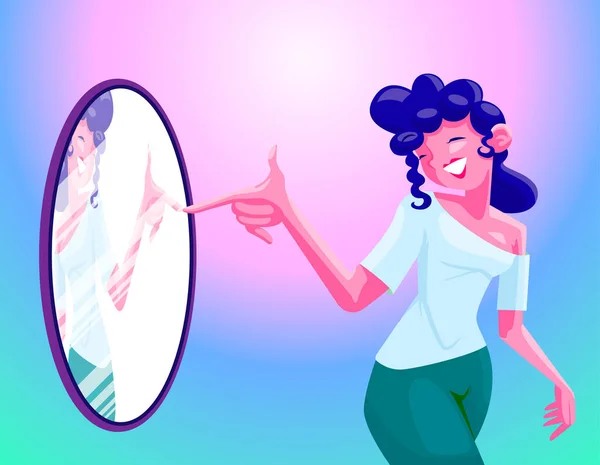 But if men, as a rule, know how to switch, then women's nerves often get out of control. This is a feature of the female psyche. And this is the case when "forewarned is forearmed".
But if men, as a rule, know how to switch, then women's nerves often get out of control. This is a feature of the female psyche. And this is the case when "forewarned is forearmed".
Take it for granted that before a significant event for you, you are drawn to cheat yourself, to get ahead, and often from scratch. “I sneeze in a dusty room, I sweat during workouts, and before an important meeting I get worried, this is normal, and you can just ignore it,” is an example of a working mantra. nine0005
Appearance
This factor is also a given: women worry about their own appearance much more than men. We will not delve into the reasons why ladies are ashamed of their face or body. We only note that it is quite possible to fight this factor. Moreover, there are methods of struggle for every taste.
You can, for example, effectively increase your own attractiveness by playing sports. Or, let's say, imbued with the concept of body positivity - learn to accept and love yourself for who you are. Or it’s banal: contact a stylist, review your wardrobe, sign up for a hairdresser and a beautician and leave all these salons with the girl of your dreams. nine0005
Or it’s banal: contact a stylist, review your wardrobe, sign up for a hairdresser and a beautician and leave all these salons with the girl of your dreams. nine0005
Excessive tendency to introspection and analysis of the actions of other people
“Yes, he said that, but he probably meant something completely different!”, “She invited us to dinner, why would she? Probably wants to ask for something", "I'm not sure if this is a good offer ... What if tomorrow I will have other interests?" - every woman noticed such reflections behind her.
In general, there is nothing wrong with them. On the contrary, they speak of a developed emotional intelligence - a high sensitivity to the needs of oneself and others, empathy, the ability to navigate social relationships between people. But there is an important nuance: uncontrolled emotional intelligence can turn into a passion for excessive analysis and reflection, which, as a result, will significantly complicate your life. Luckily, he is quite trainable.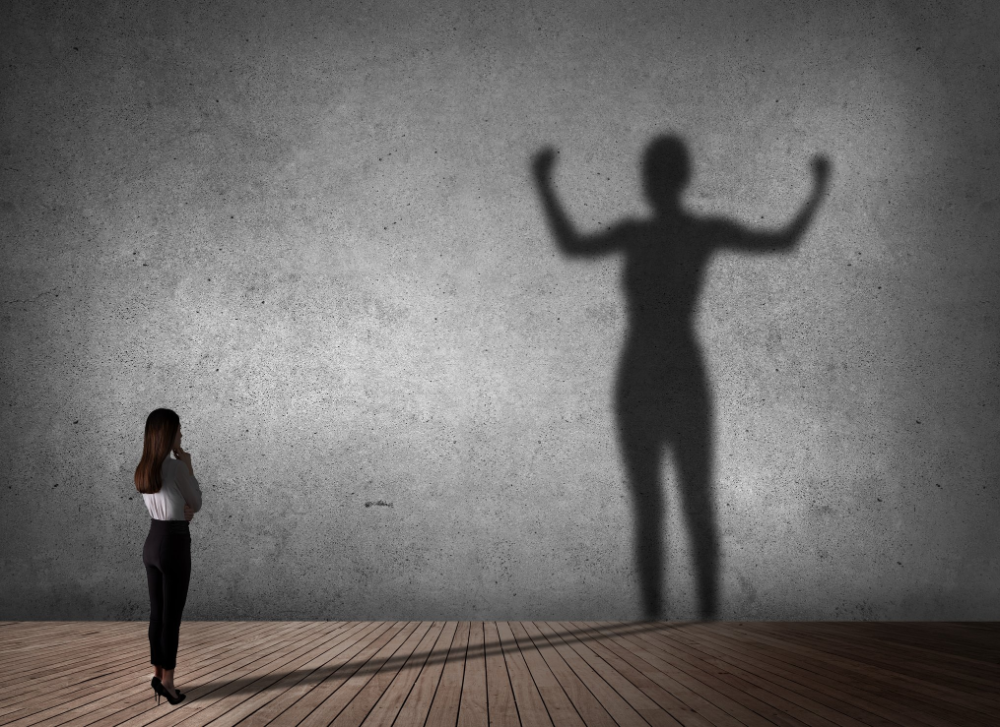 nine0005
nine0005
3. Use popular methods to improve self-esteem
Both sexes can effectively use the universal recommendations for developing self-love: you can also concentrate on methods that take into account the physical and psychological characteristics of women.
Find a comfortable way to appear taller
“Looking down” is not just a common phrase about snobbery. This is one of the principles on which social relations work: we subconsciously perceive high growth as one of the signs of a leader. Here, for example, you can read a detailed article by the authoritative American edition of Business Insider on this subject: it contains the benefits that a person receives through growth. Subconscious perception shapes reality, and if you feel physically superior to others, your self-esteem rises at the same time. nine0005
It is relatively easy for a woman to feel "more majestic" if she wears high-heeled shoes or platform shoes, or at least raises the seat of her office chair to rise above her counterpart during negotiations.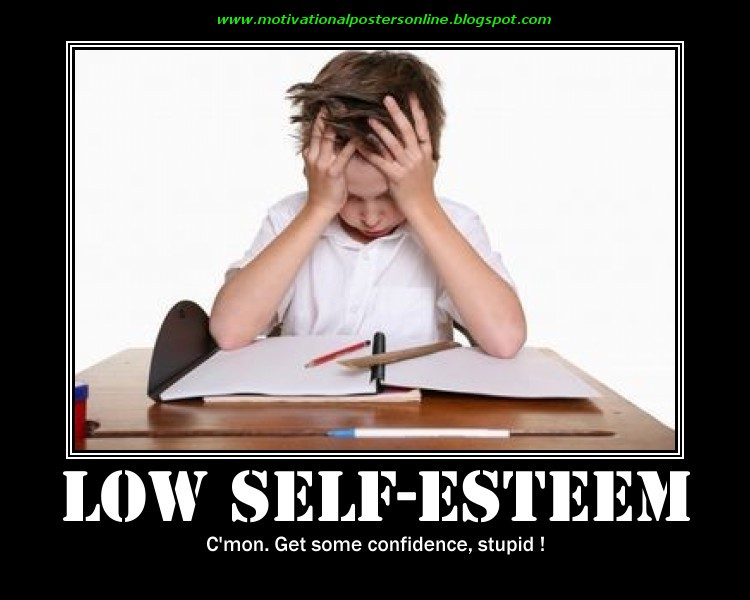 Yes, height-enhancing exercises can also have a positive effect.
Yes, height-enhancing exercises can also have a positive effect.
Watch your posture
A straight back has a powerful effect on behavior and self-perception. The reason is largely physiological: a raised chin and straightened shoulders cause the release of testosterone, a “masculine” hormone that gives assertiveness and self-confidence. In addition, a proud posture reduces stress levels and reduces anxiety. nine0005
Gesture
Confidence is often associated with how much space we occupy in space. Remember wildlife: large dominant animals move sweepingly and imposingly. But those who are hunted, on the contrary, try to be as small and inconspicuous as possible. Gesticulation during a conversation helps to expand the place in the space that you occupy. As a result, you will feel more freedom and self-confidence.
If you are not used to gesturing, it is worth practicing in front of a mirror to find exactly those movements that will look as natural as possible. nine0005
nine0005
Do not cross your arms over your chest
This closed posture is also a way to appear small and inconspicuous, so a person who has covered himself from the world with his arms is perceived by others as weak. Yes, and he himself begins to feel as such.
If during a conversation you do not know where to put your hands, put them on your sides: put your palms on your waist, bending your elbows. This is an open pose that exudes confidence.
Do not be afraid to laugh at your mistakes
People who are insecure tend to make excuses or hide mistakes. Confident people take responsibility for their decisions, both good and bad. Saying “Yes, I made a mistake here, next time I will have to do it differently” is actually much easier than it seems. And this is a marker by which others define a psychologically strong person. nine0005
Ask yourself the question “So what?”
Often we are afraid of some things that do not really have significant consequences. To sober up yourself at such moments, it is useful to ask the question “So what?”. For example:
To sober up yourself at such moments, it is useful to ask the question “So what?”. For example:
- “I want to voice this, but what if other people don’t support me?” - and what?
- “I would like to go to this event, but I hardly know anyone there…” — so what?
- "I can forget what to say next during the presentation" - so what?
This simple express introspection allows you to understand that even under the most negative scenario of the development of events, nothing terrible will happen to you. This means you can take action.
Find a role model
Among the people around you, there will certainly be those who demonstrate confident behavior and high self-esteem. Take a look at them. Try to act like them. This is one way to adopt successful life principles and "copy" the desired level of confidence. nine0005
4. Do what you love
Doing what you love is one of the most effective ways to build self-esteem. The hardest part here is finding a hobby that you really enjoy.





